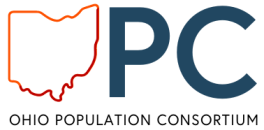From the CHRR Director’s Desk Issue #41

By Stephen M. Gavazzi, Ph.D.
The Latest News, Views, and Announcements
What’s New at CHRR
I want to begin this month’s newsletter with recognition of some great news from our friends and collaborators in the Institute for Population Research (IPR). As announced by IPR Director Sarah Hayford at their kickoff luncheon last week, new funding was awarded that will launch the Center for Aging Families (CAF). CAF brings together scholars from Ohio State, Bowling Green University, and Purdue University to advance scholarship on health and wellbeing of aging families (an effort that is part of the Ohio Population Consortium). The Center is funded by a P30 infrastructure grant from the National Institutes on Aging as part of the Centers for the Demography and Economics of Aging. CAF activities will include seminars, grant-writing activities, an annual conference, and seed grant funding. As well, the grant application included a component that will allow CAF-affiliated researchers to take advantage of our American Population Panel (APP). More details will become available in the very near future.

CHRR's Leadership Team
Thanks to everyone who attended the recent virtual town hall session that focused on digital accessibility, and continued thanks to Laura Rusnak for her leadership on this topic. Leadership Team members shared feedback about their experience of the training, with a keen eye toward a follow-up conversation that will focus more specifically on CHRR digital accessibility issues and concerns.
Additionally, please note that team members should be finishing up their Quarterly Check-Ins (QCIs) with supervisors this week. Planning ahead, I will be setting up my first QCIs with CHRR Leadership Team members during the week of January 19-23, 2026.
CHRR Team Member Celebrations
"Coming together is a beginning. Keeping together is progress. Working together is success." -Henry Ford
This month we are observing the work anniversaries of seven valued employees:
- Frank Bell, 25 years of service to CHRR.
- Sa Ho, 18 years of service to CHRR.
- Jenifer Hoffman, 6 years of service to CHRR.
- Alla Koneva, 27 years of service to CHRR.
- Craig Lee, 28 years of service to CHRR.
- Steve McClaskie, 40 years of service to CHRR.
- Thomasz Michalak, 19 years of service to CHRR.
That’s a total of 163 years of service to our center (and an average of over 23 years). Thank you for your commitment to the CHRR mission!

Things You Might Want to Know
Inside Higher Ed Op-Ed Puts Spotlight on Higher Education Study
The Higher Education study conducted by CHRR and researchers from Ohio State’s Salmon P. Chase Center for Civics, Culture, and Society (mentioned in last month’s newsletter) was the basis for a new op-ed I wrote that was recently published by Inside Higher Ed. While the entire piece can be viewed on the Inside Higher Ed website, here is a taste of the article (in this case, the ending paragraph):
So, what does this mean for higher ed leaders? It means we need to stop assuming we know what the public thinks—and start asking. It means we need to be transparent about how we allocate resources, and why. And it means we need to recognize that public opinion isn’t static. It evolves. And if we’re not paying attention, we’ll miss the signals.
Of course, paying attention to public opinion is a very significant part of what we do here at CHRR! As always, the magic happens when you can present solid evidence that knowledge of public opinion really does matter. As a reminder, this Higher Education project used the American Population Panel (APP) to collect data, and remains one of our first longitudinal studies conducted explicitly to assess consistency and changes in public sentiment over time among APP panelists.

